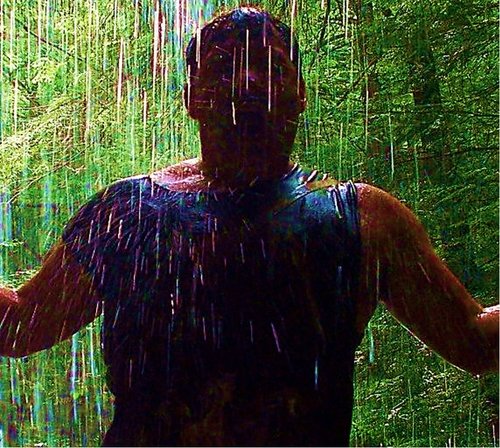MOVIE REVIEWS
 Review by John Chard
Review by John Chard
How did you die, Joseph? The Changeling is directed by Peter Medak and co-written by Russell Hunter, William Gray and Diana Maddox. It stars George C. Scott, Trish Van Devere, Melvyn Douglas, John Colicos and Jean Marsh. Plot finds Scott as John Russell, a music composer whose life is shattered when an accident kills both his wife and young daughter. Relocating to Seattle, Russell rents a large Gothic style mansion from which to bury himself in his work. But he soon discovers he is not alone in the house, there is a ghost here and it desperately wants his help with something... Not a teenager or a scantily clad bad actress in sight here, for this is a traditional haunted house spooker for the adults, one that has a distressing mystery at its core that's just aching to be solved. Chief writer Russell Hunter has based much of the film on an incidents that happened to him in real life when he moved into a house in Denver. If you believe him or not is not really the point, because it does not take away from just how well executed The Changeling is, both as a scary movie and a well thought out drama. There's limited characters in the narrative, thus keeping the film free from filler and the clumsy character set-ups that mar so many horror films these days. It's also worth noting that it doesn't suffer from dating either, as Nicole Kidman starrer The Others proved 21 years later, a haunted house tale can be effective in any decade if the writing and direction is spot on. The Changeling has both, plus a towering and believable performance from Scott leading the way. Medak clearly knows that an imposing house is a key element. Utilising the big spaces to emphasise Russell's loneliness, he sweeps his camera around the sets (this is not a real house, it's a brilliant mock-up creation by the designers) to give the feeling of a spirit observing proceedings. The house is always a main character and acts as the perfect backdrop to some ghostly goings on (excellent work from the sound department too). The chills are genuine, the attic room is creepy personified, a rubber ball, a wheelchair, a bath sequence, an old water well and even the gentle tinkling from a music box, all induce the hairs on the back of the neck to stand to attention. And there's a séance! Oh yes indeed, a séance that's tape recorded, more chills down the spine on the way there as well. All played out to some lush unholy musical arrangements from Ken Wannberg (the music box theme composed by Howard Blake). Setting it apart from conventional haunted house movies is that it has a most intriguing story to tell. One of murder, greed, deception and grief. The latter part is often forgotten when talk of The Changeling arises. John Russell is absolutely stricken with grief, this stops him from being one of those characters who you shake your head at because they refuse to leave a clearly troubled house. His grief process, which makes him the ideal host for what this spirit wants, means he has no fear, some unhappy ghost can't hurt him anymore than he is hurting anyway. It's a neat and seamless meditation on grief that's threaded into the story. The last quarter of the film slips into action territory, which is a little jarring given the smooth pacing Medak has favoured up to that point. But although the scares have gone, the intelligent story has come full circle and the film closes down triumphantly without copping out or having resorted to unimaginative formula. An essential viewing for those who like haunted house movies; especially if you like slow build and genuine mystery as well. 9/10
 Review by Wuchak
Review by Wuchak
_**George C. Scott grapples with a haunted house**_ A grieving composer (Scott) rents a mansion in Seattle that’s been unoccupied for a dozen years and starts a relationship with the Historical Society agent who offered it to him (Trish Van Devere). Unfortunately, the manor has a shameful history and weird things start happening. "The Changeling" (1980) is haunted house horror in the tradition of "The Legend of Hell House" (1973), "The Evil" (1978) and "The Amityville Horror" (1979). While it's not as good as "Amityville Horror," it's pretty much on par with "Legend of Hell House" and “The Evil” and would influence future ghostly flicks, like "The Ring" (2002). The writer of the book and co-scripter, Russell Hunter, claimed the story is based on his experiences while living in the Henry Treat Rogers mansion in the Cheesman Park neighborhood of Denver in the late ’60s. For me, the apparition is accorded too much power by the scriptwriters in the second half and this provokes a “Yeah, right” response rather than scares or awes. A good example is setting a house on fire at will. Why Sure! Trish, by the way, was Scott’s wife from 1972 until his passing in 1999. The film runs 1 hour, 47 minutes, and was shot in the Vancouver area, Seattle, and New York City (Lincoln Center), with one scene done in Toronto. GRADE: B-/C+